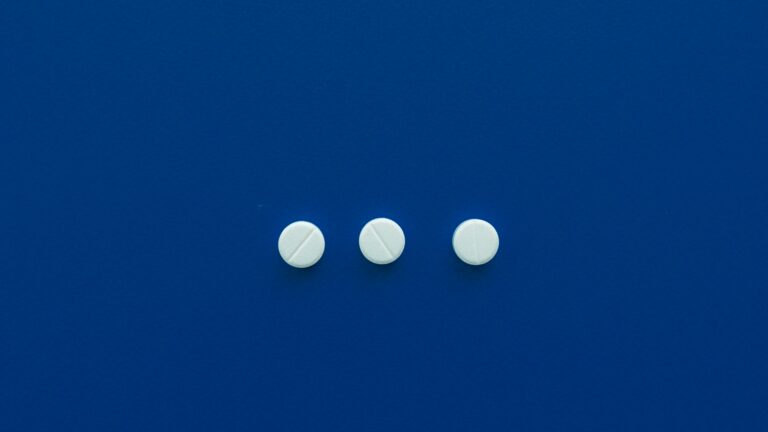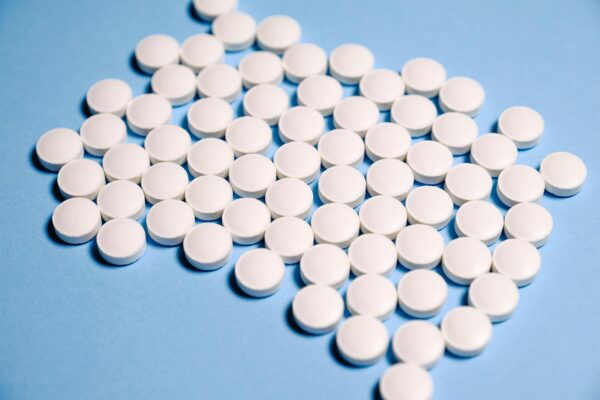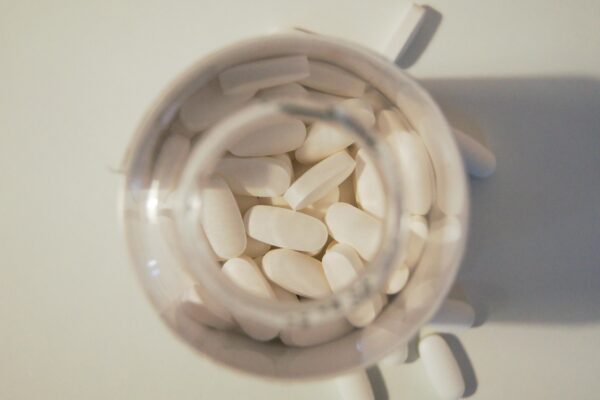When it comes to mental health and sexual health, finding the right balance can feel like walking a tightrope. Bupropion, a popular antidepressant, has gained attention for its unique properties, but some men are left wondering: “Is this medication messing with my performance in bed?” Don’t worry, fellas—we’re here to break it all down, keep it real, and maybe even throw in a laugh or two while we’re at it.
- What Is Bupropion? A Quick Rundown
- Erectile Dysfunction and Antidepressants: The Usual Suspects
- Does Bupropion Cause Erectile Dysfunction?
- The Bright Side: Bupropion May Improve Sexual Health
- How to Address Erectile Dysfunction While on Bupropion
- Lifestyle Changes to Boost Sexual Health
- When to Seek Help
- Final Thoughts: Keep the Confidence Up
- Studies, Sources, and Links
- FAQs: Bupropion and Erectile Dysfunction
- Question: Can bupropion cause erectile dysfunction?
- Question: Does bupropion improve sexual function compared to other antidepressants?
- Question: What can I do if I experience erectile dysfunction while taking bupropion?
- Question: Are there lifestyle changes that can help with erectile dysfunction?
- Question: Should I stop taking bupropion if I have sexual side effects?
- Question: Is bupropion a good choice for men concerned about sexual side effects?
What Is Bupropion? A Quick Rundown
Bupropion (brand names include Wellbutrin and Zyban) is an atypical antidepressant often prescribed for depression, seasonal affective disorder (SAD), and even as an aid to quit smoking. Unlike many other antidepressants, bupropion works on dopamine and norepinephrine rather than serotonin. This means it’s less likely to cause some of the common side effects seen with other medications, like weight gain or that foggy brain feeling.
But when it comes to your bedroom game, things can get… complicated.
Erectile Dysfunction and Antidepressants: The Usual Suspects
Let’s face it, most antidepressants come with a bit of a buzzkill reputation when it comes to sex. Many medications, particularly selective serotonin reuptake inhibitors (SSRIs), are notorious for causing issues like:
- Low libido
- Difficulty achieving or maintaining an erection
- Delayed ejaculation
So, does bupropion fall into the same camp? Not exactly.
Does Bupropion Cause Erectile Dysfunction?
The good news: bupropion is actually less likely to cause erectile dysfunction (ED) compared to other antidepressants. In fact, it’s sometimes prescribed to combat the sexual side effects of SSRIs.
But here’s the catch: while most men report improvements in their sexual health while on bupropion, a small number still experience erectile dysfunction, reduced libido, or difficulty achieving orgasm. Why? It boils down to how bupropion interacts with your body’s complex chemistry.
Potential Reasons Bupropion May Affect Sexual Performance:
- Stress and Anxiety: Let’s be honest—if you’re struggling with depression, anxiety, or stress, that can already take a toll on your libido. Adding a new medication to the mix might temporarily complicate things.
- Dopamine and Norepinephrine Effects: While these neurotransmitters are great for mood and motivation, the balance can sometimes shift in ways that mess with your sexual function.
- Underlying Health Issues: Sometimes, ED isn’t about the medication at all. Conditions like diabetes, high blood pressure, or even low testosterone could be contributing factors.
The Bright Side: Bupropion May Improve Sexual Health
Now for the twist—bupropion is often seen as a game-changer for men who’ve struggled with the libido-killing effects of other antidepressants. Here’s why:
- Minimal Impact on Libido: Many men find their sex drive either improves or stays the same while on bupropion.
- Better Mood, Better Performance: When your mood stabilizes, your confidence tends to rise—and confidence is half the battle in the bedroom.
- Possibly Enhances Orgasm: Some studies suggest bupropion might actually make orgasms more intense for certain men.
How to Address Erectile Dysfunction While on Bupropion
If you’re feeling like bupropion is throwing a wrench into your sex life, don’t panic—there are steps you can take to get things back on track.
1. Talk to Your Doctor
First things first, open up to your healthcare provider. It might feel awkward, but trust us, they’ve heard it all before. They can help determine whether bupropion is the culprit or if something else is at play.
2. Rule Out Other Factors
Sometimes, ED has more to do with your lifestyle than your meds. Consider these common culprits:
- Smoking or excessive alcohol use
- Poor diet and lack of exercise
- High levels of stress or inadequate sleep
Making small changes here can have a big impact.
3. Adjust Your Medication
If bupropion doesn’t feel like the right fit, your doctor might suggest:
- Switching to a different antidepressant.
- Adding a low-dose ED medication like sildenafil (Viagra) or tadalafil (Cialis).
- Adjusting the dosage of bupropion.
4. Experiment with Timing
Some men find that adjusting when they take bupropion can minimize side effects. For example, taking it earlier in the day might help reduce any impact on nighttime activities.
Lifestyle Changes to Boost Sexual Health
While medication plays a role, your overall lifestyle can make or break your sexual health. Here’s how to keep things running smoothly:
1. Prioritize Exercise
Regular physical activity improves blood flow, boosts testosterone, and reduces stress—all of which are crucial for peak bedroom performance.
2. Eat Like a King
Focus on a balanced diet rich in whole foods, lean proteins, and healthy fats. Foods like spinach, avocado, and salmon are great for sexual health.
3. Manage Stress
Easier said than done, right? But stress is a major libido killer. Consider incorporating meditation, yoga, or even just daily walks into your routine.
4. Stay Hydrated
Dehydration can lead to fatigue and poor circulation, neither of which is your friend in bed. Aim for at least 8 glasses of water a day.
When to Seek Help
If ED persists despite making adjustments, it’s time to dig deeper. Possible underlying issues include:
- Hormonal imbalances
- Circulatory problems
- Psychological factors
A specialist, such as a urologist or endocrinologist, can help pinpoint the root cause.
Final Thoughts: Keep the Confidence Up
Listen, guys—whether it’s bupropion, stress, or just a bad day, your sexual health isn’t something to ignore. The good news is that most cases of ED are treatable, and with the right approach, you can get back to feeling like yourself again. Remember, you’re not alone in this, and there’s no shame in reaching out for help.
P.S. Your sex life isn’t over—it’s just hitting a speed bump. With the right mix of meds, lifestyle changes, and good vibes, you’ll be back in action before you know it. So, chin up, king—the best is yet to come.
Studies, Sources, and Links
Scientific Studies on Bupropion and Sexual Health
- Bupropion’s Effects on Sexual Function
- A study published in the Journal of Clinical Psychiatry explored the effects of bupropion on sexual dysfunction caused by other antidepressants. The research found that switching to bupropion significantly improved sexual function in participants.
Source: Journal of Clinical Psychiatry
- A study published in the Journal of Clinical Psychiatry explored the effects of bupropion on sexual dysfunction caused by other antidepressants. The research found that switching to bupropion significantly improved sexual function in participants.
- Bupropion and Dopamine-Driven Sexual Benefits
- Research in the Archives of Sexual Behavior highlighted how bupropion’s mechanism of action, involving dopamine and norepinephrine, might enhance sexual desire and reduce the risk of erectile dysfunction compared to SSRIs.
Source: Archives of Sexual Behavior
- Research in the Archives of Sexual Behavior highlighted how bupropion’s mechanism of action, involving dopamine and norepinephrine, might enhance sexual desire and reduce the risk of erectile dysfunction compared to SSRIs.
- Comparative Study of Antidepressants and ED
- A clinical trial published in the American Journal of Psychiatry compared bupropion with SSRIs and SNRIs, demonstrating that bupropion had a lower incidence of sexual side effects, including erectile dysfunction.
Source: American Journal of Psychiatry
- A clinical trial published in the American Journal of Psychiatry compared bupropion with SSRIs and SNRIs, demonstrating that bupropion had a lower incidence of sexual side effects, including erectile dysfunction.
Helpful Resources for Men’s Sexual Health
- National Institute of Mental Health (NIMH)
- Provides an in-depth guide on antidepressants, including how they affect sexual health and practical tips for managing side effects.
Link: NIMH Website
- Provides an in-depth guide on antidepressants, including how they affect sexual health and practical tips for managing side effects.
- American Urological Association (AUA)
- A trusted resource for understanding erectile dysfunction, its causes, and treatment options.
Link: AUA Website
- A trusted resource for understanding erectile dysfunction, its causes, and treatment options.
- Mayo Clinic: Antidepressants and Sexual Side Effects
- Offers detailed insights into how antidepressants impact sexual function and steps to address these issues.
Link: Mayo Clinic
- Offers detailed insights into how antidepressants impact sexual function and steps to address these issues.
Further Reading on Lifestyle and Sexual Health
- Exercise and Sexual Performance
- Studies show regular physical activity improves sexual function. Learn more at the Harvard Health Blog.
Link: Harvard Health
- Studies show regular physical activity improves sexual function. Learn more at the Harvard Health Blog.
- Dietary Impacts on Erectile Health
- Explore the connection between diet and sexual health in this Heart and Stroke Foundation article.
Link: Heart and Stroke Foundation
- Explore the connection between diet and sexual health in this Heart and Stroke Foundation article.
- Managing Stress for Better Libido
- Practical stress management techniques from the American Psychological Association.
Link: APA Website
- Practical stress management techniques from the American Psychological Association.
By staying informed and exploring these trusted sources, you’ll not only enhance your understanding but also take meaningful steps toward improving your sexual health. Remember, knowledge is power, and you’ve got this.
FAQs: Bupropion and Erectile Dysfunction
Question: Can bupropion cause erectile dysfunction?
While bupropion is less likely than other antidepressants to cause erectile dysfunction, it can still occasionally affect sexual performance. The impact varies from person to person and may depend on other health factors.
Question: Does bupropion improve sexual function compared to other antidepressants?
Yes, bupropion is often associated with fewer sexual side effects and may even improve sexual function in some individuals, especially those switching from SSRIs or SNRIs.
Question: What can I do if I experience erectile dysfunction while taking bupropion?
If you experience erectile dysfunction while taking bupropion, consult your doctor. They may adjust your dosage, suggest lifestyle changes, or recommend additional treatments to address the issue.
Question: Are there lifestyle changes that can help with erectile dysfunction?
Yes, lifestyle changes like regular exercise, a healthy diet, stress management, and reducing alcohol or tobacco use can significantly improve erectile function and overall health.
Question: Should I stop taking bupropion if I have sexual side effects?
You should not stop taking bupropion without consulting your doctor. Sudden discontinuation can cause withdrawal symptoms or worsen your condition. Your doctor can guide you on the best course of action.
Question: Is bupropion a good choice for men concerned about sexual side effects?
Bupropion is often considered a good choice for men concerned about sexual side effects, as it is less likely to cause issues like erectile dysfunction or decreased libido compared to other antidepressants.
Disclaimer: This article is for informational purposes only and should not replace professional medical advice. Always consult with a healthcare provider before starting any new treatment.





